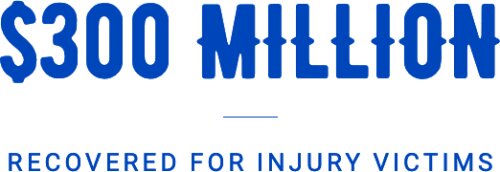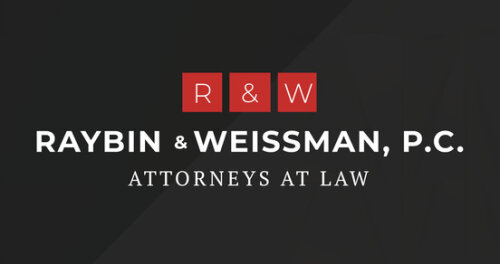Best Car Accident Lawyers in Nashville
Share your needs with us, get contacted by law firms.
Free. Takes 2 min.
List of the best lawyers in Nashville, United States
About Car Accident Law in Nashville, United States
This guide provides plain-language information for people involved in car accidents in Nashville, Tennessee. Car-accident law in Nashville operates within Tennessee state law and local enforcement practices. Key legal issues after a crash typically include fault and negligence, insurance coverage and claims, personal injury damages, property damage, and potential criminal charges for offenses such as driving under the influence or hit-and-run. Timing and procedure matter - from reporting the crash to filing a lawsuit - so early action and understanding your rights can protect recovery options.
Why You May Need a Lawyer
Not every crash requires an attorney, but there are common situations where legal help is important. A lawyer can help if you suffer serious or long-term injuries, have medical bills you cannot pay immediately, face disputed fault or complex liability, are dealing with uninsured or underinsured drivers, or encounter insurance companies that deny or undervalue your claim. Lawyers are also needed in wrongful death cases, where there are high stakes and legal deadlines; in accidents involving commercial vehicles, government entities, or product defects; or when evidence is disappearing or important witnesses are not cooperating. An attorney can preserve evidence, explain statutory deadlines, calculate full damages including future losses, and negotiate or litigate for fair compensation.
Local Laws Overview
Below are local and state-law elements that commonly affect car-accident cases in Nashville.
- Fault-based insurance system - Tennessee uses a fault-based approach. The driver who caused the crash is generally responsible for damages through liability insurance. You will typically make a claim against the at-fault driver or that driver’s insurer.
- Comparative fault - Tennessee follows a form of comparative negligence where courts allocate fault between parties. If you were partially at fault, your recovery may be reduced by your percentage of fault. There is a percentage threshold that can bar recovery when the plaintiff is too far at fault - speak with a local attorney to understand how that rule applies to your case.
- Minimum liability insurance - Tennessee requires drivers to carry liability insurance in minimum amounts to cover bodily injury and property damage. These minimums can change, so verify the current requirements if insurance coverage questions arise.
- Reporting and police involvement - Crashes that cause injury, death, or significant property damage generally must be reported to law enforcement. A police report is often an important record used in claims and lawsuits.
- Statutes of limitations and deadlines - Tennessee imposes time limits for filing lawsuits after an accident. Those deadlines are strictly enforced, so preserving your legal rights means acting promptly. There may also be shorter deadlines for claims against government entities.
- DUI, reckless driving, and criminal consequences - If the crash involves suspected impaired driving, reckless conduct, or a hit-and-run, criminal charges can be filed in addition to civil claims for damages.
Because state rules, insurance minimums, and court procedures are subject to change and can be technical, consult a Nashville attorney for exact legal standards and deadlines that apply to your situation.
Frequently Asked Questions
What should I do immediately after a car accident in Nashville?
Ensure safety and get medical attention for anyone injured. If possible, move vehicles out of harm’s way and call 911 to report injuries or serious damage. Exchange contact and insurance information with the other driver, take photos of the scene, vehicles, license plates, and injuries, and get contact information for witnesses. Notify your insurance company and keep records of medical care and other accident-related expenses.
Do I need to call the police for every accident?
Call the police if there are injuries, death, suspected impairment, or significant property damage. Even if police do not come to a minor crash, you may be required to report it to local authorities or your insurance company. A police report can be valuable evidence for insurance claims and legal actions.
How is fault determined after an accident?
Fault is determined by examining the actions of each driver, traffic laws, witness statements, physical evidence, and any available video or photographs. Insurance adjusters and, if necessary, courts will allocate responsibility. Comparative fault rules may reduce a driver’s recovery if they share responsibility for the crash.
What if the other driver is uninsured or underinsured?
If the other driver lacks sufficient insurance, your uninsured or underinsured motorist coverage may cover your losses, up to your policy limits. If you do not have that coverage, recovery options include pursuing the at-fault driver personally, which can be difficult if they lack assets, or suing for damages. A lawyer can help assess practical recovery options.
How much is my claim worth?
Value depends on the severity of injuries, medical bills, lost wages, property damage, pain and suffering, long-term disability, and other losses such as loss of consortium. Insurance policy limits and fault allocation also affect recovery. An attorney can provide a more accurate estimate after reviewing your medical records, bills, and other evidence.
Should I give a recorded statement to the other driver’s insurance company?
You should be cautious. Insurers often request recorded statements early. You are not required to give a recorded statement and should avoid admitting fault or speculating about liability. It is reasonable to provide basic facts and require your own attorney’s involvement for detailed questioning, especially in significant injury cases.
How long will my case take?
Timelines vary widely. Minor claims may settle in weeks to months; serious injury cases can take many months or years if litigation is needed. The process depends on investigation complexity, medical treatment timelines, insurance negotiations, and whether the case goes to trial.
Can I be sued if I was at fault?
Yes. If you caused a crash, other parties can sue you for damages. Your liability insurance typically provides a defense and pays for covered claims up to policy limits. If damages exceed your policy limits, you could be personally liable for the excess, which makes legal counsel and appropriate insurance coverage important.
What is the role of medical records and treatment in a claim?
Medical records document injuries, treatment, and the causal link between the accident and your injuries. Timely and consistent medical care strengthens a claim. Records also help calculate past and future medical costs. Failing to seek prompt treatment can weaken a claim by creating gaps in the injury timeline.
How do I choose the right attorney in Nashville?
Look for an attorney experienced in motor vehicle accidents and Tennessee personal injury law. Ask about trial experience, success with similar cases, fee structure, communication practices, and client reviews. Many personal injury lawyers work on contingency-fees, which means they are paid a percentage of the recovery. Schedule an initial consultation to discuss your case and decide whether you have confidence in the lawyer’s approach.
Additional Resources
Below are organizations and resources that can assist you or provide further information:
- Metropolitan Nashville Police Department for reporting and records related to collisions.
- Tennessee Department of Safety and Homeland Security for driver and vehicle regulations and crash reporting rules.
- Tennessee Department of Commerce and Insurance for consumer questions about auto insurance and filing complaints against insurers.
- Tennessee courts and local courthouse clerks for filing procedures and local court rules.
- Metropolitan Nashville-Davidson County government offices for local ordinances and administrative matters.
- Tennessee Bar Association and Nashville Bar Association for lawyer referrals and guidance on finding qualified attorneys.
- National Highway Traffic Safety Administration and Centers for Disease Control and Prevention for crash data and safety information.
Next Steps
If you need legal assistance after a car accident in Nashville, follow these steps to protect your rights and position your case for the best possible outcome:
- Seek immediate medical attention - your health is the priority, and treatment documentation supports any claim.
- Preserve evidence - keep photos, repair estimates, medical bills, receipts, witness contacts, and the police report number.
- Notify your insurer - report the claim promptly and provide required information, but be careful about recorded statements.
- Avoid signing releases or accepting final settlement offers without legal advice, especially for significant injuries.
- Consult a local car-accident attorney as soon as reasonably possible - many offer free initial consultations and can explain your legal options, deadlines, likely value of the claim, and next steps for evidence preservation and dealing with insurers.
- Track deadlines - insurance claim deadlines and lawsuit filing deadlines can be short. Ask your lawyer about applicable statutes of limitations and any special rules when a government driver or agency is involved.
- Choose an attorney based on experience, communication style, contingency-fee arrangements if needed, and local trial experience. Get the engagement terms in writing and understand how expenses and fees will be handled.
Taking prompt, informed steps after a crash improves the chance of a fair recovery. If you are unsure where to start, contact a Nashville personal injury lawyer to discuss your situation and preserve your rights.
Lawzana helps you find the best lawyers and law firms in Nashville through a curated and pre-screened list of qualified legal professionals. Our platform offers rankings and detailed profiles of attorneys and law firms, allowing you to compare based on practice areas, including Car Accident, experience, and client feedback.
Each profile includes a description of the firm's areas of practice, client reviews, team members and partners, year of establishment, spoken languages, office locations, contact information, social media presence, and any published articles or resources. Most firms on our platform speak English and are experienced in both local and international legal matters.
Get a quote from top-rated law firms in Nashville, United States — quickly, securely, and without unnecessary hassle.
Disclaimer:
The information provided on this page is for general informational purposes only and does not constitute legal advice. While we strive to ensure the accuracy and relevance of the content, legal information may change over time, and interpretations of the law can vary. You should always consult with a qualified legal professional for advice specific to your situation.
We disclaim all liability for actions taken or not taken based on the content of this page. If you believe any information is incorrect or outdated, please contact us, and we will review and update it where appropriate.









